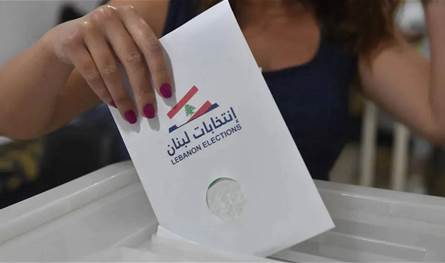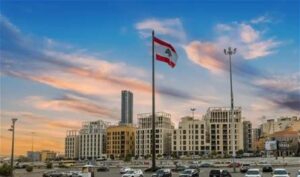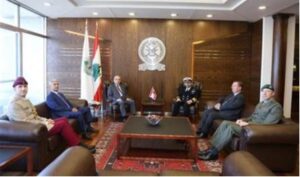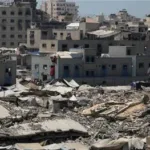
Despite the state of division that the Lebanese arena is witnessing regarding the issue of holding the upcoming parliamentary elections, there appears to be a growing tendency within some political circles towards accepting them, even if reluctantly.
The forces within the “Shiite duo,” along with a number of figures and forces with a Sunni majority, consider that the elections constitute an opportunity to re-establish their popular and parliamentary presence after a period of political confusion and decline in public discourse. For these forces, any new extension of the current council will be interpreted as a retreat, while a return to the ballot boxes may allow them to rearrange their ranks and regain some confidence and legitimacy.
In contrast, the situation within the Christian arena appears more complex. The “Free Patriotic Movement” believes that the current conditions are not conducive to running in new elections, because the popular mood is not guaranteed and may translate into clear losses in the number of seats and the percentage of support, especially after the significant decline in its popularity within the Christian areas. As for the “Lebanese Forces”, which opinion polls show is leading in the street, they do not also seem enthusiastic about the elections, despite their relative superiority, as they consider that holding them at this time may cause confusion. The cards put them in front of political possibilities that they do not want to face now, especially in light of the escalation of regional tension and the changing balance of power overnight.
Although the internal debate is heated between supporters and opponents, everyone realizes that the decision to hold or postpone the elections is not actually made within Lebanon, but rather depends on the course of regional and international developments. The major powers concerned with the Lebanese file, especially the United States, view the elections as part of a broader political scene linked to the situation in the region. Washington, according to several indicators, prefers that the elections come after the features of regional settlements become clear, whether comprehensive or partial.
Some observers believe that the Americans, along with a number of Western capitals, may link the date of the Lebanese elections to the results of any potential confrontation with Iran, or at least to the future of its influence in the region. If Tehran is weakened politically or militarily, this will naturally affect its allies in Lebanon, led by Hezbollah, which may open the door to elections with completely different scales.
Thus, the issue of elections remains hostage to a signal coming from abroad rather than an internal decision stemming from a Lebanese consensus. Between waiting for war or settlement, the debate in Beirut continues without resolution, in a scene that once again reflects the fragility of Lebanese political life and its almost complete dependency on regional and international climates.
The post The decision to postpone the elections is not up to internal forces appeared first on 961 today Lebanon today.


















